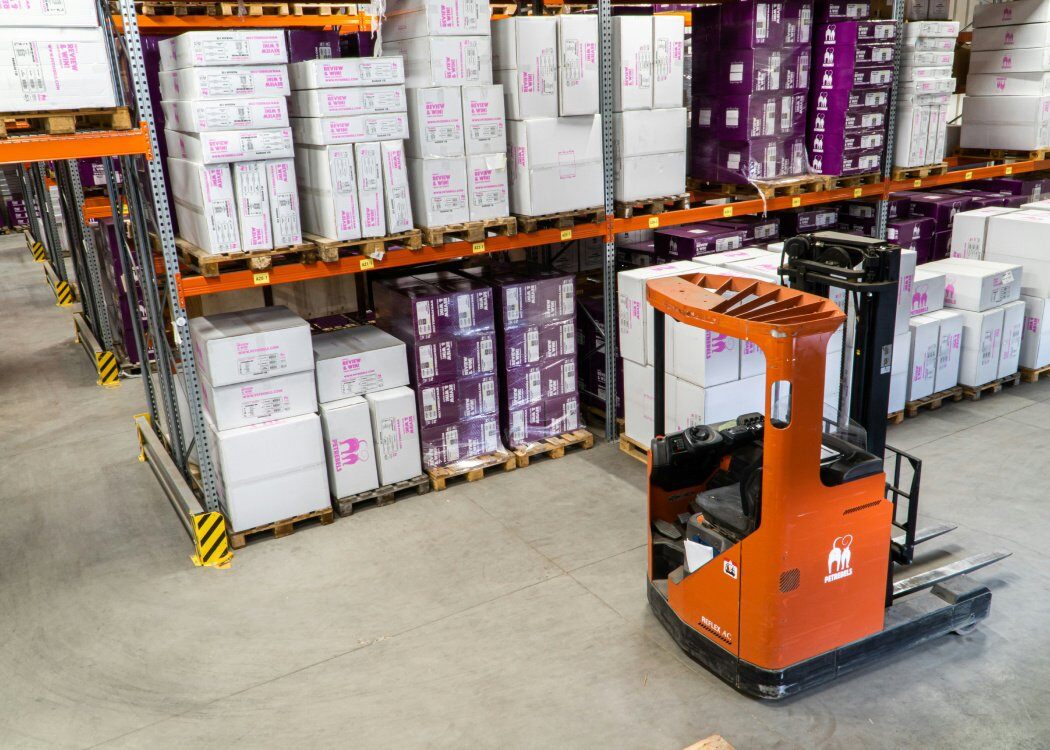1 min read
Is it time for a packaging redesign?
Packaging redesign is the process of updating and improving the visual and functional aspects of a product's packaging to better align with current...
4 min read
 Ekaterina Skalatskaia
:
2024-08-12 08:00
Ekaterina Skalatskaia
:
2024-08-12 08:00

Discover how digital solutions can help prevent product packaging recalls and save costs for your business.
Product recalls can have significant financial implications for businesses. Not only do they result in direct costs such as refunds and replacements, but they also lead to damage to a company's reputation and consumer trust. Here are some examples of notable packaging recalls and their potential costs to companies:
In 2007, Nestlé Purina faced a significant challenge when it had to recall its Mighty Dog and Alpo brands due to concerns about contamination with melamine, a chemical sometimes found in packaging materials. This recall highlighted the potential hazards associated with packaging and the impact such issues can have on consumer trust. Although the specific costs of this recall were not disclosed, it is well-known that recalls in the pet food industry can cost companies millions of dollars. These costs typically arise from lost sales, legal liabilities, and the need to implement new packaging solutions to prevent future issues. The recall of millions of pet food packages resulted in substantial brand damage for Nestlé Purina, as well as a loss of consumer confidence, illustrating the importance of rigorous quality control and safety measures in packaging processes.
In recent years, there have been unfortunate incidents highlighting how crucial accurate labeling is for food products. In 2017, a well-known British sandwich chain, Pret A Manger, came under fire after two people died from allergic reactions due to incorrect labeling. The first case involved 15-year-old Natasha Ednan-Laperouse, who bought a sandwich at London’s Heathrow Airport. Natasha had a severe sesame allergy and carefully checked the label, but it didn’t mention the sesame seeds baked into the bread. Sadly, she went into cardiac arrest during her flight and later passed away. This led the UK Government to introduce Natasha’s Law in October 2021, tightening regulations around allergen labeling.
More recently, in January 2024, Stew Leonard’s, a company in Connecticut, had to recall a batch of cookies after 25-year-old Órla Baxendale died from an allergic reaction to peanuts that weren’t listed on the label. Originally from the UK, Órla had moved to New York to pursue a ballet career. The cookies were made by Cookies Unlimited, a wholesaler that had recently changed its recipe without updating its labels. These incidents serve as stark reminders of how important it is to have clear and accurate labels to protect people with allergies.
Labeling and packaging errors are a big reason why so many food and drink products are recalled around the world. Recalls can have a huge impact on businesses, with not just the direct costs but also the more serious reputational damage:
Direct Costs: These include the expenses related to retrieving the recalled products, destroying them, and replacing them with new, compliant products. This can range from tens of thousands to millions of dollars, depending on the scale of the recall.
Lost Sales: Recalls often lead to a drop in consumer confidence, resulting in decreased sales. This can have a long-term impact on a company's market share and profitability.
Legal and Regulatory Costs: Companies may face legal action from affected consumers, leading to costly settlements. Additionally, they might incur fines and penalties from regulatory bodies.
Brand Damage: The long-term damage to a brand's reputation can be severe, impacting customer loyalty and future sales. Rebuilding trust can require significant marketing and public relations efforts.
Operational Disruptions: Recalls can disrupt production schedules and supply chains, leading to additional operational costs.
By implementing digital solutions for packaging content management, businesses can reduce the risk of recalls. Digital platforms enable companies to track and monitor packaging materials, ensuring compliance with safety regulations and quality standards. They provide real-time visibility into the entire packaging process, from design to production, reducing the chances of errors or issues that could lead to recalls. Additionally, digital solutions enable faster communication and collaboration between different stakeholders involved in the packaging process, minimizing the chances of miscommunication or delays that could result in faulty packaging.
Digital solutions offer several strategies to prevent product recalls. One key approach is the use of digital platforms for packaging artwork management. These platforms provide centralized control over artwork files, ensuring consistency and accuracy in packaging design. By implementing version control and approval workflows, businesses can avoid errors and miscommunication that could lead to recalls.
Another strategy is the use of digital tools for quality control during the packaging process. Digital platforms can automate quality checks and inspections, ensuring that packaging materials meet safety standards and regulations. Real-time monitoring and analytics enable businesses to identify and address any issues or deviations from standards, reducing the risk of recalls.
Furthermore, digital solutions facilitate effective communication and collaboration between different stakeholders involved in the packaging process. By providing a centralized platform for sharing information and feedback, digital tools help minimize the chances of miscommunication or delays that could result in faulty packaging.
In conclusion, digital solutions offer a range of strategies to prevent product recalls. By implementing packaging artwork management systems, automating quality control processes, and improving communication and collaboration, businesses can significantly reduce the risk of recalls and save costs.
Cway software plays a crucial role in reducing recalls by streamlining and enhancing the entire packaging artwork management process. Here’s how Cway can help minimize the risk of product recalls:
Cway provides a centralized platform for managing all packaging artwork. This eliminates the confusion and errors that often arise from using multiple systems or scattered files. By having a single source of truth, your team can ensure that the correct and approved artwork is always used, reducing the risk of inconsistencies that could lead to recalls.
With Cway, you can automate workflows and proofing processes. This automation reduces the chance of human error, which is a common cause of recalls. The software provides tools to ensure that all artwork goes through the necessary approval stages and is checked for compliance with brand and regulatory standards.
Cway allows team members to collaborate in real time, regardless of their location. This capability means that artwork can be reviewed, edited, and approved faster, leading to quicker corrections and less chance for mistakes. Real-time access ensures that everyone involved is always working with the latest version of the artwork.
The software offers structured overviews and planning tools that help teams make informed decisions about their packaging. By having a clear view of the artwork status and upcoming deadlines, teams can strategize effectively to avoid rushed changes that often lead to errors.
Cway is designed with a user-friendly interface that simplifies the learning curve, allowing teams to adapt quickly without extensive training. This ease of use ensures that the software is used effectively across all stages of the artwork lifecycle.
The software includes features for digital asset comparison, which helps ensure that the final printed packaging matches the approved artwork. This consistency is crucial in preventing recalls due to packaging errors, such as incorrect labeling or branding.

By providing a streamlined, collaborative, and error-resistant environment for managing packaging artwork, Cway significantly reduces the likelihood of recalls. It helps maintain the integrity of your brand while ensuring compliance with all necessary standards and regulations.
In summary, artwork management software offers improved efficiency, accuracy, and collaboration in packaging design. By implementing such software, businesses can reduce the risk of recalls and ensure consistent and compliant packaging.

1 min read
Packaging redesign is the process of updating and improving the visual and functional aspects of a product's packaging to better align with current...

3 min read
FMCG (Fast-Moving Consumer Goods) companies often face challenges in managing product revision workflows due to the complexity and scale of their...
%20(2).jpg)
2 min read
If you're a graphic packaging designer, brand manager, or carton industry engineer looking to enhance your packaging designs with the right product...